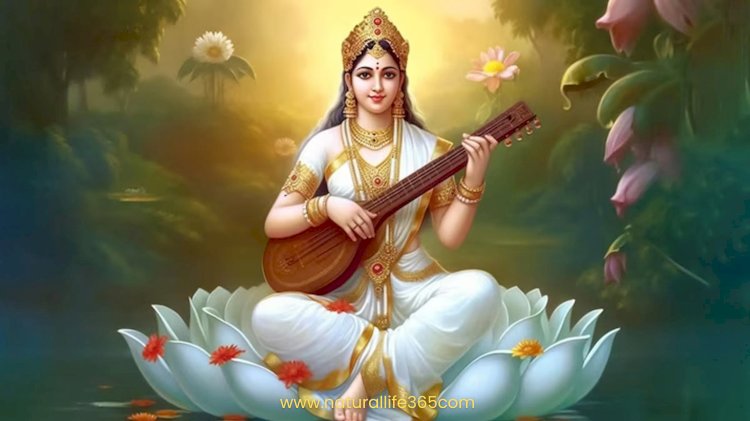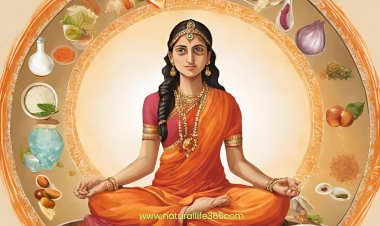Celebrate Saraswati Puja: Discover the Significance of Vasant Panchami
Uncover the deep-rooted cultural and spiritual importance of Saraswati Puja during the auspicious Vasant Panchami.

Hey there, festival enthusiasts and curious minds! Have you ever wondered why Saraswati Puja or Vasant Panchami holds such a special place in the hearts of millions across India?
Saraswati Puja marks the celebration of knowledge, arts, and wisdom, while Vasant Panchami heralds the arrival of spring, bringing with it a burst of colors and new beginnings. In 2024, Saraswati Puja is celebrated on 14 February.
Join me on a journey of discovery as we explore the historical roots, mythological tales, and cultural customs that make Saraswati Puja or Vasant Panchami truly unique.
Explore the Historical Roots of Saraswati Puja and Vasant Panchami
Saraswati Puja finds its origins in the Vedic period, an era characterized by profound spiritual exploration and intellectual inquiry. In those ancient times, the reverence for knowledge, wisdom, and artistic expression was embodied in the form of Goddess Saraswati. Scholars and sages of the Vedic age sought her blessings through hymns and rituals, invoking her divine guidance in their pursuit of enlightenment.
As Hinduism flourished and diversified over the centuries, so too did the celebration of Saraswati Puja. During the medieval era, the festival transformed, becoming more elaborate and widespread. Communities across the Indian subcontinent came together to pay homage to Goddess Saraswati, offering prayers and performing rituals to invoke her blessings for wisdom, creativity, and academic success.
The Arrival of Spring: Vasant Panchami
Meanwhile, Vasant Panchami, the auspicious fifth day of the spring season, emerged as a celebration of nature's renewal and vitality. In ancient times, this day marked the onset of agricultural activities, as farmers prepared their fields for sowing. It symbolized the awakening of life after the dormancy of winter, with blooming flowers and vibrant colors adorning the landscape.
Over the centuries, Saraswati Puja and Vasant Panchami have evolved, assimilating elements from diverse cultural influences and regional traditions. While the essence of reverence towards Goddess Saraswati and the celebration of spring remains unchanged, the manner of observance varies across different communities and regions of India.
Mythological Context of Goddess Saraswati
In Hindu mythology, Goddess Saraswati is revered as the embodiment of knowledge, music, arts, and wisdom. Often depicted as a serene figure adorned with a veena (musical instrument) and holding scriptures in her hands, she symbolizes the eternal pursuit of enlightenment and the power of creative expression.
Legend has it that Goddess Saraswati emerged from the cosmic waters at the dawn of creation, riding atop a majestic swan. As the consort of Lord Brahma, the creator of the universe, she played a vital role in shaping the fabric of reality, bestowing upon humanity the gift of language, literature, and the arts.
Saraswati Puja celebrates the divine presence of Goddess Saraswati and her blessings upon devotees, inspiring them to seek knowledge, pursue their passions, and express themselves through various forms of artistry. As we honor Goddess Saraswati during Vasant Panchami, let us reflect on her timeless wisdom and embrace the creative spirit that resides within us all.
Cultural Significance: Embracing the Diversity of Saraswati Puja Celebrations
Saraswati Puja, celebrated with fervor across India, showcases the rich tapestry of cultural diversity that defines our nation. From the grand festivities in West Bengal to the intimate gatherings in South India, the festival holds a special place in the hearts of millions, transcending regional boundaries and uniting communities in reverence for Goddess Saraswati.
In West Bengal, Saraswati Puja is a grand affair, with elaborately decorated pandals adorning every street corner. Devotees dressed in traditional attire throng to temples and makeshift altars, offering prayers and seeking blessings for academic success and artistic endeavors. The air is filled with the melodious strains of music, as cultural programs and dance performances bring joy to all participating in the celebrations.
In other parts of India, Saraswati Puja is celebrated more intimately, with families coming together to worship the goddess in their homes. Special prayers are offered, and offerings of flowers, fruits, and sweets are made to honor Goddess Saraswati and seek her blessings for wisdom and knowledge.
Regardless of the regional variations, the underlying sentiment remains the same – to honor Goddess Saraswati and celebrate the pursuit of knowledge, arts, and wisdom. Saraswati Puja serves as a reminder of the cultural heritage that we hold dear and the values that unite us as a nation.
As we immerse ourselves in the vibrant celebrations of Saraswati Puja, let us embrace the diversity of our cultural traditions and rejoice in the unity that binds us together. May Goddess Saraswati bless us with wisdom, creativity, and the courage to pursue our dreams.
Symbolism and Rituals: Exploring the Sacred Traditions of Saraswati Puja
Saraswati Puja is not just a festival; it's a tapestry woven with threads of symbolism and rich cultural rituals, each thread adding depth to the celebration and imbuing it with spiritual significance.
The Symbolic Elements
Central to Saraswati Puja are the symbolic representations of knowledge, wisdom, and creativity. The goddess herself, often depicted holding a veena (musical instrument) and adorned with scriptures, represents the embodiment of these virtues. The swan, her divine vehicle, symbolizes discernment and discrimination, while the lotus symbolizes purity and enlightenment.
The Rituals
The rituals of Saraswati Puja are steeped in tradition and devotion, each one carrying profound meaning for devotees. The day begins with the ceremonial bathing of the goddess, symbolizing purification and the washing away of impurities. Offerings of flowers, fruits, and sweets are made to Saraswati Devi, accompanied by the chanting of hymns and prayers invoking her blessings.
A significant ritual during Saraswati Puja is the placement of books, instruments, and artistic tools at the feet of the goddess. This symbolic gesture represents the offering of one's talents and skills to the goddess, seeking her guidance and blessings for success in academic pursuits and creative endeavors.
The Significance of Saraswati Puja
Beyond the surface-level rituals lies a deeper significance to Saraswati Puja. It's a day to honor the pursuit of knowledge in all its forms, whether academic, artistic, or spiritual. It's a reminder that true wisdom comes not just from books but from an open mind and a thirst for learning.
As we partake in the rituals of Saraswati Puja, let us reflect on the symbolism behind each act and the profound meaning it holds for our spiritual and intellectual growth. May Goddess Saraswati bless us with clarity of thought, creativity in expression, and the wisdom to navigate life's journey with grace and dignity.
Importance in Education and Arts: Nurturing Knowledge and Creativity through Saraswati Puja
Saraswati Puja holds a special place in the hearts of students, teachers, and artists alike. It serves as a day dedicated to the pursuit of knowledge and the celebration of creativity, fostering a deep connection between education, arts, and spirituality.
A Day for Academic Excellence
For students, Saraswati Puja is a time to seek the blessings of Goddess Saraswati for success in their academic pursuits. Many educational institutions organize special prayers and ceremonies, with students offering heartfelt invocations for clarity of thought and memory retention. The goddess is revered as the divine source of wisdom, guiding students on their quest for knowledge and enlightenment.
Inspiration for Artistic Expression
In addition to its significance in education, Saraswati Puja also inspires artistic expression in various forms. As the patroness of music, dance, literature, and the arts, Goddess Saraswati serves as a muse for artists and creatives seeking inspiration. Musicians compose melodies, writers pen verses, and dancers choreograph performances, channeling their devotion into creative endeavors that honor the goddess and celebrate her divine gifts.
Cultural Significance
Beyond its practical implications for education and arts, Saraswati Puja holds deep cultural significance in Indian society. It serves as a reminder of the importance of learning and creativity in shaping the cultural identity of the nation. The festival brings communities together in celebration, fostering a sense of unity and collective reverence for the values of knowledge, wisdom, and artistic expression.
As we celebrate Saraswati Puja and honor Goddess Saraswati, let us embrace the profound connection between education and arts, recognizing their transformative power in enriching our lives and shaping our society. May the blessings of the goddess inspire us to pursue knowledge with passion and express ourselves creatively with purpose.
In Kolkata, Saraswati Puja is Considered as Their Valentine's Day
In Kolkata, Saraswati Puja holds a special place in the hearts of the locals, akin to Valentine's Day in other parts of the world. The city comes alive with a vibrant energy, as young hearts flutter with anticipation and excitement for the festivities ahead.
In Kolkata, the streets are adorned with colorful decorations, reminiscent of the festive spirit that surrounds Valentine's Day celebrations. Pandals are erected in every neighborhood, showcasing intricate artistry and creativity, while makeshift altars dedicated to Goddess Saraswati spring up in homes and public spaces, inviting devotees to offer their prayers and seek her blessings.
Just as couples exchange tokens of love and affection on Valentine's Day, devotees of Saraswati Puja exchange flowers, sweets, and heartfelt wishes with friends and family. It's a day of bonding and camaraderie, as people come together to celebrate the spirit of knowledge, creativity, and enlightenment that Goddess Saraswati embodies.
So, while the rest of the world may celebrate Valentine's Day with roses and chocolates, in Kolkata, Saraswati Puja reigns supreme as a day of love and devotion towards the goddess who inspires us all to reach for the stars with our intellect and creativity.
Let us carry with us the profound significance of these festivals. May we continue to celebrate the pursuit of knowledge, creativity, and wisdom in our lives, drawing inspiration from the divine essence of Goddess Saraswati. Let the joyous spirit of Vasant Panchami uplift our hearts and fill our souls with the vibrant colors of spring, as we embrace the blessings of renewal and new beginnings. Happy Saraswati Puja and Vasant Panchami to all!
If you value these free online resources provided by Natural Life 365, please consider supporting my website by sharing the blogs ![]()
DISCLAIMER:
Some of the links in this content may be affiliate links. This means that if you click on one of the links and make a purchase, I may receive a commission (at no extra charge to you). However, I only recommend products that I personally use and have tested myself. Also, understand that I have taken reasonable steps to ensure that the information on this content is accurate, but I cannot represent that the website(s) mentioned in this post are free from errors. Please, check the Affiliate Disclosure at the bottom of this website.










































